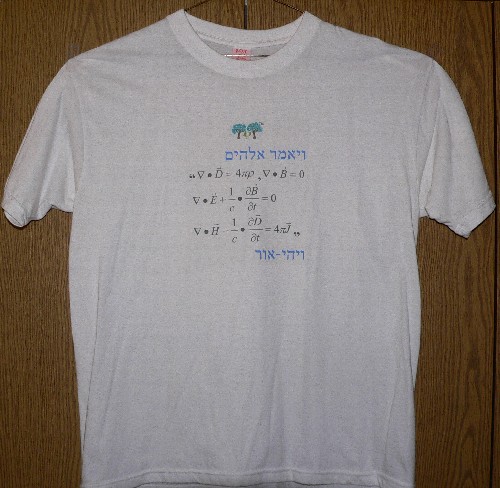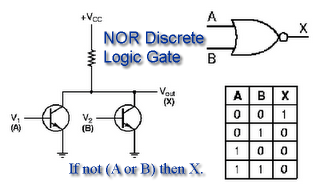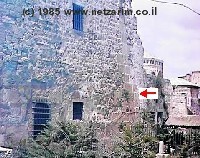
 |
| Torâh | Haphtârâh | Âmar Ribi Yᵊhoshua | Mᵊnorat ha-Maor |
|---|---|---|---|
32.46 "úÌÀöÇåÌËí your children—to be sho•meirꞋ to do all of the Dᵊvâr•imꞋ [i.e., Oral Law] of this úÌåÉøÈä."
Rendering Dᵊvâr•imꞋ as "words" (which can mean written) rather than the literal "speakings"—which explicitly specifies an oral version of úÌåÉøÈä, the popular rendering in modern times derives from Christian glosses aimed at denying Oral Law, and misdirects readers who depend upon English—an unacceptable mistake. Most readers cannot read, and therefore must learn, Hebrew to become able, for the first time in their life, to read the Bible.

"Observance of the Torah's laws and the milieu of the halakha were the central factor in Jewish life during this [Second Temple] period. The assertion that 'there was no factor, force or event which made so significant an impression on the history of the Jewish people, molded its life and forged its character, as the halakha', is particularly appropriate with regard to the Second Temple period, not only with respect to the Pharisees, but also with regard to their opponents, who scrupulously observed the law according to the Sadducean tradition. Not only observance of the Torah's commandments, but also preoccupation with the proper interpretation of the law in its most minute details, stood in the center of their spiritual world. The halakhic minutiae, concepts, and terms of the talmudic sages that we find in the Mishna of the later Tannaim and which occasionally appear to the result of late, abstract rabbinic speculation, actually have their roots in this period; they now come alive in front of our eyes as a concrete historical reality, in contemporary documents stemming from Hasmonean times. The people toiled over the halakha and meditated upon it; they clashed over it and divided because of it."
(Scholarly Appendix re: (4Q) MMT (Mi•qᵊtz•atꞋ Ma•as•ëhꞋ ha-Tor•âhꞋ): Appendix 1, by Y. Sussman[n] to Qimron, Elisha and Strugnell, John, in consultation with Y. Sussmann and with contributions by Y. Sussmann and A. Yardeni, Discoveries in the Judaean Desert • X, Qumran Cave 4 • V, Miqṣat Ma'aśe ha-Torah (Oxford: Clarendon Press, 1994), p. 197).

 |
åÇéÀäÄé àåÉø |
Dᵊvâr•imꞋ referred to the spoken word, which, unlike the written word, ancients regarded as equivalent to the thing referenced by the spoken word – since é--ä spoke (not wrote) and "it was."
Thus, to the ancients, there was no difference between a thing and the spoken word symbolizing it. To the ancients, the sound emanating from speaking the word "mountain," for example, evokes the image, in the mind's eye, of the mountain and, therefore, they reasoned, was the mountain. The thing, the concept and its utterance were all the same. However, this equivalence clearly didn't extend to the written word. One could see, for example, that the word "mountain" written on leather could be held in one's hand and was, therefore, conspicuously different from the actual mountain. This ancient association is also the origin of the superstition that, if one only pronounces a word correctly, spoken incantations produce magic or miracles, golems, etc.; and speaking "the Name" exactly right imbues the speaker with special power.
Whenever subsequent innovations, whether Christian or rabbinic (especially adopting medieval and European innovations, assimilations and superstitions), involve additions to or subtractions from (much less contradictions to) "this úÌåÉøÈä" then such innovations—no matter how entrenched in tradition they may become—cannot be valid.
Adherance to this principle cannot be overstated (bᵊ-Reish•itꞋ 32.47): "for it isn't an empty Saying [point of Oral Law] for you; for it is your life." Your eternal life depends upon it!
 |
 |
This pâ•râsh•âhꞋ begins äÇàÂæÄéðåÌ
This verb (àæï) is also the shorꞋësh of àÉæÆï, usually described in the 'pair' form: àÈæÀðÇéÄí. The traditional triangular filled-cookies of ôÌåÌøÄéí are àÈæÀðÅé äÈîÈï.
The pâ•suqꞋ continues: äÇùÑÈîÇéÄí – This plural "pair" (or "dual") term likely derives from ancient words referring generally to a pair of "ceilings" above the world. Interestingly, it is expressed as a pair (the "□aꞋyim" ending). Or, alternately, it could have referred to a dual daylight and night "pair of ceilings."
Thus, the pâ•suqꞋ reads:
32.1 – äÇàÂæÄéðåÌ äÇùÑÈîÇéÄí åÇàÂãÇáÌÅøÈä; åÀúÄùÑÀîÇò äÈàÈøÆõ àÄîÀøÅé-ôÄé
In smoother English, "Listen-up heavens for I have spoken! And let the land hearken to the Sayings [i.e., Oral Law] of My Mouth."
 |
32.4 — Undoubtedly resulting from centuries of redaction and persecution from the Church, the English from which even Jewish Bibles are reluctant to diverge can only be described in passages like this one as deceptive and misleading. This was the work of King James, who eradicated the last vestige of Jews (Marranos) from England (1609), two years before publishing the KJ/V NT in 1611 – and 15 years before composing Textus Receptus of 1624 C.E., a product of KJ/V that has been wrongly represented to be the Greek source text (at least in years past by, for example, Strong's Concordance).
Like countless other passages of Ta•na"khꞋ, there is no hint in the English translation of this pâ•suqꞋ that Tor•âhꞋ shë-bi•khᵊtâvꞋ is confirming the validity of îÄùÑÀôÌÈè – which we know by the post-Biblical rabbinic term familiar to RibꞋ i (rabbinic!) Yᵊho•shuꞋ a—Ha•lâkh•âhꞋ.
 |
Yet, the Hebrew reveals the pâ•suqꞋ to read:
äÇöÌåÌø, úÌÈîÄéí ôÈòÈìåÉ, ëÌÄé ëÈì-ãÌÀøÈëÈéå îÄùÑÀôÌÈè;
ôÈòÃìåÉ is marked both with a âÇÌòÀéÈä indicating the stressed (first) syllable and a æÈ÷Åó-÷ÈèÈï, a sustain-disjunctive, translated in English here as a comma.
ëÌÄé is marked by a îÇàÂøÈëÈä, a conjunctive binding it within a clause to the subsequent term.
As a result, the partitioning of the clauses by the cantillation is explicit: {He is the Rock} {Wholesome is His action} {because all of His Ways} {are mi•shᵊpâtꞋ}.
 |
32.4b – ëÌÄé ëÈì-ãÌÀøÈëÈéå îÄùÑÀôÌÈè;
As I demonstrated in my books, Who Are The Nᵊtzarim? Live-LinkT (WAN)![]() and The Nᵊtzârim Reconstruction of Hebrew Matitᵊyâhu (NHM, in English)
and The Nᵊtzârim Reconstruction of Hebrew Matitᵊyâhu (NHM, in English)![]() , mi•shᵊpâtꞋ = Ha•lâkh•âhꞋ. Those who are not walking according to the mi•shᵊpâtꞋ of a Pᵊrush•imꞋ-heritage Beit-Din are not walking in His Ways—and it's conspicuous even at a glance: By their fruits, that is their practice, you shall know them." (E.g., do they eat kâ•sheirꞋ? Are they sho•meirꞋ ùÑÇáÌÈú? Etc.)
, mi•shᵊpâtꞋ = Ha•lâkh•âhꞋ. Those who are not walking according to the mi•shᵊpâtꞋ of a Pᵊrush•imꞋ-heritage Beit-Din are not walking in His Ways—and it's conspicuous even at a glance: By their fruits, that is their practice, you shall know them." (E.g., do they eat kâ•sheirꞋ? Are they sho•meirꞋ ùÑÇáÌÈú? Etc.)
Moreover, àÅì àÁîåÌðÈä åÀàÅéï òÈåÆì
 |
| Discrete Logic (NOR gate) |
This may seem self-evident. But what if there is hard Scriptural evidence that conflicts with your current beliefs? Which, then is of àÅì Who is àÁîåÌðÈä:
Scripture and hard evidence? or
your current beliefs and man (what your preacher, imam or rabbi tells you)?
Faith in the irrational or trust in the Rational and Logical Perfect Creator? One can never fear or avoid truth while claiming to follow àÅì Who is àÁîåÌðÈä. That is self-contradicting and sanctimonious. Yet, when it threatens one's own beliefs, everyone tends to ignore documented facts, hard evidence, science and mathematical logic that contradict their belief system. It's a terribly strong tendency that every intelligent person must resist mightily. Those who ignore documented facts, hard evidence, science and mathematical logic are not following ha-Eil Who is Truth—Creator of the real world / the real Creator.
 |
úÌÈí, the singular, is used to describe the requirement for a qor•bânꞋ to be whole, without imperfection or blemish – and is often rendered "without blemish" or "unblemished".
 |
| Venn Diagram, Logic Sets: Intersection |
The verse continues, "All of His ways are mi•shᵊpâtꞋ" (not properly translated as justness or justice—which would be Hebrew tzᵊdâq•âhꞋ, note tza•diqꞋ is found in the next pâ•suqꞋ). "He is ha-Eil of ë•mun•âhꞋ, and without âwël. He is Tza•diqꞋ and straightforward." These attributes of a Perfect One would be compromised and corrupted if He were to embrace beings whose attributes were blemished—that's us, humans. This implies that é‑‑ä bears us only by providing for us a method of ki•purꞋ which extricates us from our blemishes. This is the operation of tᵊshuv•âhꞋ, as exemplified by é‑‑ä's provision of the Mâ•shiꞋakh, the unblemished (as a result of tᵊshuv•âhꞋ and ki•purꞋ) PësꞋakh qor•bânꞋ, and both the qor•bânꞋ and Az•â•zeilꞋ goats of Yom Ki•purꞋ.
 |
![]()
 |
| Beit Din Mi•shᵊpâtꞋ |
In the NT version, the Christianized English glosses over the criteria for eternal life:
18.21 – åÀäÈøÈùÑÈò, ëÌÄé éÈùÑåÌá îÄëÌÈì-çèàúå àÂùÑÆø òÈùÒÈä, åÀùÑÈîÇø àÆú-ëÌÈì-çË÷ÌåÉúÇé, åÀòÈùÒÈä îÄùÑÀôÌÈè åÌöÀãÈ÷Èä; çÈéÉä éÄçÀéÆä, ìÉà éÈîåÌú:
To smooth out the English, "And the wicked who will make tᵊshuv•âhꞋ from all of his kheit, which he did, and shall be sho•meirꞋ concerning all of My khuqot and shall do mi•shᵊpâtꞋ and tzᵊdâq•âhꞋ, then he absolutely shall live!!!"
Like countless other instances, one couldn't guess from the Christianized English that this passage confirms mi•shᵊpâtꞋ with all of its implications.
Examination of the Hebrew reveals that pâ•suqꞋ 27 again reconfirms mi•shᵊpâtꞋ.
The úÌåÉøÈä "Plan of Salvation," the only Way to salvation, continues through the end of the chapter. Here is the only Way, the Truth and the Life. No man comes to the Father but via this Way!
 |
![]()
| Ta•na"khꞋ | Translation | Mid•râshꞋ RibꞋi Yᵊho•shuꞋa: NHM |
NHM |
||||||||||||||||
|---|---|---|---|---|---|---|---|---|---|---|---|---|---|---|---|---|---|---|---|
|
|
||||||||||||||||||
|
|
||||||||||||||||||
 |
As the commentators through the centuries well knew, Yᵊkhëz•qeilꞋ wrote, ca. B.C.E. 583, about the Exile in Bâ•vëlꞋ under Nᵊvu-khad-nëtz•arꞋ and a future return to Yᵊru•shâ•laꞋyim under ZᵊruꞋ-Bâ•vëlꞋ. These same commentators also recognized, however, that his writings portended a more cryptic echo in a longer-range, eternal heavenly plan for Yi•sᵊrâ•eilꞋ – a future messianic redux. As the Artscroll editors of Yechezkel (sic) note:
"What came ['îÅøÉàùÑ éÉðÀ÷åÉúÈéå øÇêÀ' (pᵊsuq•imꞋ 4 & 22)], the youthful king [Yᵊho•yâkh•inꞋ] whom [Nᵊvu-khad-nëtz•arꞋ] had ignominiously dragged into captivity after only three months as king? ([Mᵊlâkh•imꞋ Beit 24.8]).
Concerning this [Yᵊho•yâkh•inꞋ], Yi•rᵊmᵊyâhꞋu had said: For if [Kâ•nᵊyâhꞋu] (i.e., [Yᵊho•yâkh•inꞋ]) the son of [Yᵊho•yâq•imꞋ, mëlꞋëkh Yᵊhud•âhꞋ] were to be a signet ring on My right hand – from there I would tear him off … Thus says [é‑‑ä]: Condemn this man to childlessness, a man who sill see no success in his days. For none of his seed shall ever sit on [Kis•eiꞋ Dâ•widꞋ] or again rule over [Yᵊhud•âhꞋ] (Yi•rᵊmᵊyâhꞋu 22.24, 30).
And yet, in [Khaj•aiꞋ]'s prophecy concerning the return to [Tzi•yonꞋ], it is just a grandson of this very [Yᵊho•yâkh•inꞋ], whom we saw condemned to childless ignominy, who is[, nevertheless, Ël•oh•imꞋ]'s chosen one, and is placed as a signet-ring upon His [Hand]: On that day, the [declaration] of [é‑‑ä of armies], I will take you, ZᵊruꞋ-Bâ•vëlꞋ… and I shall place you as a signet-ring. For you, I have chosen… ([Khaj•aiꞋ] 2.23).
The bridge between these seemingly irreconcilable passages lies in the regeneration which Tᵊshuv•âhꞋ… makes possible…" (Artscroll, Yechezkel, p. 286-7)
RashꞋ"i identifies the subject of the verse [17.22] as the îÆìÆêÀ äÇîÌÈùÑÄéçÇ… [Radak] explains that it refers to [ZᵊruꞋ-Bâ•vëlꞋ], the grandson of [Yᵊho•yâkh•inꞋ], the leader of the people who would return to [Yi•sᵊrâ•eilꞋ] at the end of the Babylonian exile ([Khaj•aiꞋ] 2.23).
Essentially, the two explanations are [equivalent]. [ZᵊruꞋ-Bâ•vëlꞋ] is the progenitor of the îÌÈùÑÄéçÇ." (Artscroll, Yechezkel, p. 287)
17.22 – ëÌÉä àÈîÇø àÂãÉðÈé é‑‑ä, åÀìÈ÷ÇçÀúÌÄé àÈðÄé, îÄöÌÇîÌÆøÆú äÈàÆøÆæ, äÈøÈîÈä åÀðÈúÈúÌÄé; îÅøÉàùÑ éÉðÀ÷åÉúÈéå øÇêÀ àÆ÷ÀèÉó, åÀùÑÈúÇìÀúÌÄé àÈðÄé, òÇì äÇø-âÌÈáÉäÌÇ åÀúÈìåÌì: 23 áÌÀäÇø îÀøåÉí éÄùÒÀøÈàÅì àÆùÑÀúÌÃìÆðÌåÌ, åÀðÈùÒÈà òÈðÈó åÀòÈùÒÈä ôÆøÄé, åÀäÈéÈä ìÀàÆøÆæ àÇãÄéø; åÀùÑÈëÀðÀåÌ úÇçÀúÌÈéå, ëÌÉì-öÄôÌåÉø ëÌÈì-ëÌÈðÈó, áÌÀöÅì ãÌÈìÄéÌåÉúÈéå úÌÄùÑÀëÌÉðÌÈä: 24 åÀéÈãÀòåÌ ëÌÈì-òÂöÅé äÇùÒÈãÌÆä, ëÌÄé àÈðÄé é‑‑ä äÄùÑÀôÌÇìÀúÌÄé | òÅõ âÌÈáÉäÌÇ, äÄâÀáÌÇäÀúÌÄé òÅõ ùÑÈôÈì, äåÉáÇùÑÀúÌÄé òÅõ ìÈç, åÀäÄôÀøÇçÀúÌÄé òÅõ éÈáÅùÑ; àÂðÄé é‑‑ä, ãÌÄáÌÇøÀúÌÄé åÀòÈùÒÄéúÄé:
Paraphrase: Thus said A•don•âiꞋ é‑‑ä, I shall take, from the treetop of the tall cedar, the height shall I give – from the head of its sucker-shoots a øÇêÀ shall I pluck, and I will transplant it, upon the high and lofty mountain. 23 On äÇø îÀøåÉí éÄùÒÀøÈàÅì shall I transplant it, and it will bear the òÈðÈó and produce fruit, and it shall be for a majestic cedar; and shall neighbor under it, every bird of every wing; in the shade of its tendrils shall it neighbor. 24 Then all of the woods of the field shall know, because I am é‑‑ä Who has put down | the high tree, elevated the lowly tree, dried-out the green tree, and caused the dry tree to blossom; I am é‑‑ä – I spoke it and I shall do it.
 |
in the Gâ•lilꞋ. This, not Har Ta•vorꞋ , was the site of the äÇø
îÀøåÉí
éÄùÒÀøÈàÅì in NHM |
The Sages agree. The "lofty cedar" – the exemplar high, sturdy and reliable backbone structure – refers to úÌåÉøÈä.
The öÌÇîÌÆøÆú of the "lofty cedar" (úÌåÉøÈä), then, is the Ma•lᵊkh•utꞋ Dâ•widꞋ – the Royal Bën-Dâ•widꞋ descendants who were registered in the yo•khas•inꞋ public genealogical registers (destroyed in the 2nd-4th centuries C.E. by the Romans).
It follows, then, that the éÉðÀ÷åÉúÈéå øÇêÀ, which é‑‑ä would pluck and transplant îÅøÉàùÑ of the öÌÇîÌÆøÆú of the "lofty cedar" (úÌåÉøÈä), is the Mâ•shiꞋakh.
Six days later, Yᵊho•shuꞋa took Shim•onꞋ "KeiphꞋâ" 4.18.2 Bar-YonꞋâh,16.17.0 Ya•a•qovꞋ "Bën-Rō•Ꞌgëz" Bar-Za•vᵊd•iy•eilꞋ 4.18.0 and his brother Yokhâ•nânꞋ "Bën-Rō•Ꞌgëz" Bar-Za•vᵊd•iy•eilꞋ 4.18.0 and brought them up upon a high har 17.1.1 privately for him lᵊhi•tᵊpa•leilꞋ.5.44.2 There he was metamorphosed before them. His face beamed 17.2.1 like the sun and his ta•litꞋ 9.20.2 became white as the or.4.16.0 And look… Mosh•ëhꞋ and Eil•i•yâhꞋu 17.3.1 appeared to them to be talking with him.17.3.2 Replying,17.4.0 KeiphꞋâ said to Yᵊho•shuꞋa, "A•don•iꞋ,22.43.2 it is good 3.10.4 for us to be here. I will make 17.4.1 three dwellings 17.4.2 here: one for you, and one for Mosh•ëhꞋ, and one for Eil•i•yâhꞋu 17.3.1 (because he did not know what he should say). While he was still speaking, look… a cloud covered them.17.5.1 While they were under the cloud they heard from the cloud 17.5.2 a voice 3.17.1 saying, "This 17.5.3 is My lone 17.5.4 son.3.17.2 My pleasure is in him.3.17.3 Hear him." 17.5.5 Hearing this, the tal•mid•imꞋ 5.1.1 fell on their faces to the earth and were exceedingly fearful.10.28.1 (NHM
17.1-6).
In prophesying that é‑‑ä would make the "lofty cedar" lowly and raise up a suckling-shoot to transplant and eclipse it, Yᵊkhëz•qeilꞋ was prophesying that the future "lofty cedar" would become corrupt, deteriorating to a self-aggrandizing, in reality sanctimonious, (Ultra-Orthodox) institution purporting to be the "Living úÌåÉøÈä". However, Yᵊkhëz•qeilꞋ continued, é‑‑ä would äÄùÑÀôÌÇìÀúÌÄé this corrupted, self-aggrandizing "cedar," eclipsing the corrupted "cedar" with the éÉðÀ÷åÉúÈéå øÇêÀ (Mâ•shiꞋakh), which àÆùÑÀúÌÃìÆðÌåÌ.
The éÉðÀ÷åÉúÈéå øÇêÀ (Mâ•shiꞋakh) åÀðÈùÒÈà òÈðÈó (shall bear the Branch: Mâ•shiꞋakh). We see here agreement with other passages (e.g., MikhꞋâh 5.1), and the Ta•lᵊmudꞋ (Ma•sëkꞋët Suk•âhꞋ 52a; for further details also click on our History Museum; then select the "Mâ•shiꞋakh" pages in the menu and scroll down to study two links: [1] "Two Comings of Mâ•shiꞋakh Prophesied" and [2] "Two Mâ•shiꞋakhs Prophesied: – Mâ•shiꞋakh Bën-Yo•seiphꞋ & Mâ•shiꞋakh Bën-Dâ•widꞋ"), that describe two advents – neither of which are the Christian idol – of the Mâ•shiꞋakh.
According to Yᵊkhëz•qeilꞋ, the éÉðÀ÷åÉúÈéå øÇêÀ (the soft sucker-shoot, the Mâ•shiꞋakh Bën-Yo•seiphꞋ) would be transplanted to produce the òÈðÈó (Branch), and it is this òÈðÈó – the Branch, the Mâ•shiꞋakh Bën-Dâ•widꞋ – that, in turn, åÀòÈùÒÈä ôÆøÄé (i.e., shall bear followers).
Thus, é‑‑ä "shall put down the high tree, elevate the lowly tree, dry-out the green tree, and cause the dry tree to blossom (namely, the soft suckling-shoot from the drying-up tree, after nearly 2,000 years, that, after transplanting, grows and blossoms)" – paralleling A•ha•ronꞋ's staff of almond wood.
•marꞋ RibꞋi Yᵊho•shuꞋa, "Take heed against false nᵊviy•imꞋ who come to you in wool like sheep, but inside they are wolves who extort. You shall recognize them by their Ma•as•ëhꞋ. Do men pick grapes from a stinging-nettle? Or figs from a thistle-bush? So, every green tree is unable to produce evil fruit, and a dried-up tree is unable to produce good fruit. Every tree that is not producing good fruit is cut out and thrown into the fire" (NHM
7.15-23).
The only blossoms äÄôÀøÇçÀúÌÄé on this òÈðÈó (Branch), which has grown from the transplanted éÉðÀ÷åÉúÈéå øÇêÀ (sucker-shoot) of the genealogically true Beit-Dâ•widꞋ are those blossoms who have been accurately tracking and adhering to the ramifications of this prophecy – Nᵊtzâr•imꞋ.
The øÉàùÑ éÉðÀ÷åÉúÈéå øÇêÀ today, then, is the Pâ•qidꞋ of the Nᵊtzâr•imꞋ; the current successor, representing the prophesied and original øÉàùÑ éÉðÀ÷åÉúÈéå øÇêÀ, who remains (in the non-dimensional realm) RibꞋi Yᵊho•shuꞋa, the Mâ•shiꞋakh.
 |
| Archeological remains of the Nᵊtzâr•imꞋ Beit ha-KᵊnësꞋët on Har Tzi•yonꞋ |
The äÇø îÀøåÉí éÄùÒÀøÈàÅì, then, is either Har ha-BaꞋyit, Har Tzi•yonꞋ or äÇø îÅéøåÉïý (certainly not Rome!). The Beit ha-KᵊnësꞋët of the Nᵊtzâr•imꞋ has resided on Har Tziy•onꞋ since the time of Pâ•qidꞋ Ya•a•qovꞋ "ha-Tza•diqꞋ".
"Then every bird (i.e., person) of every kind of wing (nation) will neighbor under it, in the shade of its plump tendrils.
"Then all the trees (religions other than the "lofty cedar") of the field (i.e., of the goy•imꞋ, including Christianity) shall know shall know that I, é‑‑ä, have cut-low a grown-tall tree (corrupted medieval version of úÌåÉøÈä) and grown-tall a cut-low tree (RibꞋi Yᵊho•shuꞋa and his Nᵊtzâr•imꞋ, whom the Roman Hellenist Christians killed and depleted, respectively—cf. Dân•iy•eilꞋ 7.25); I have dried-up a green tree (corrupted medieval version) and caused a dry tree (the post-135 C.E. Christian-perverted counterfeit of RibꞋi Yᵊho•shuꞋa and his Nᵊtzâr•imꞋ) to blossom (the logical, scientific and modern úÌåÉøÈä-view of the restored Nᵊtzâr•imꞋ)'"
 |
| Setting: ca. 29 C.E. Location: Northwest shore of Yâm Ki•nërꞋët |
|
Addressing Israel, Dᵊvâr•imꞋ 32.7b assumes a úÌåÉøÈä upbringing and father: "Ask your father and he will relate it to you, your zᵊqan•imꞋ and they will tell you" —this is úÌåÉøÈä, the basis of NHM![]() 7.7.
7.7.
Elaborating on Dᵊvâr•imꞋ 32.7b, RibꞋi Yᵊho•shuꞋa 's choice of a synonym for Zᵊqan•imꞋ is especially interesting. •marꞋ RibꞋi Yᵊho•shuꞋa, "Ask and it shall be given to you. Request of Ël•oh•imꞋ and He will give it to you; search and you will find." Although the connection was obvious to first-century Pᵊrush•imꞋ Jews, the connection has been lost by those unfamiliar with the usage of Ël•oh•imꞋ in Shᵊm•otꞋ 23.16, 13; 22.7,8; et al.—to refer to the Zᵊqan•imꞋ of the Beit-Din.
 |
 |
in the Gâ•lilꞋ. This, not Har Ta•vorꞋ , was the site of the äÇø
îÀøåÉí
éÄùÒÀøÈàÅì in NHM |
Dᵊvâr•imꞋ 32.5 — RibꞋi Yᵊho•shuꞋa's teaching in NHM![]() 17.17 concerning the "convoluted generation" is clearly based on this pâ•suqꞋ.
17.17 concerning the "convoluted generation" is clearly based on this pâ•suqꞋ.
The clear allusion implies that RibꞋi Yᵊho•shuꞋa safely assumed that his audience of Pᵊrush•imꞋ Jews recognized something that was plainly taught in Dᵊvar•imꞋ 32.5. His use of the phrase in association with leaving the world also suggests this. This phrase has another connection, as this phrase, ãÌåÉø òÄ÷ÌÅùÑ åÌôÀúÇìÀúÌÉì, is introduced:
32.5 – ùÑÄçÅú ìåÉ, ìÉà áÌÈðÈéå îåÌîÈí;
Beside wrongly translating ùÑÄçÅú in popular English translations (as a noun or intrans. verb), the cantillation requires that the two clauses be partitioned not as popularly rendered in English, but as: {clause 1} "he or it is ruining to or for him or it" followed by {clause 2} "not of his sons is their blemish). Phrased as a question, as concordances and commentators suppose, and assuming some of the pronouns: "[The twisted generation] is ruining [something unspecified] for Him. Is their blemish not of His sons?"
I'm not convinced it's a question. Rather, it's a declaration: "[The twisted generation] is ruining [something unspecified] for Him. Their blemish is not of His sons!"
However theologically inconvenient, disconcerting or enigmatic, these preclude—twice over—the popular English translations.
In Hebrew, the verb "to be" in the present tense is understood. The placement of "is" in English can therefore be confusing. Thus, we may translate this as "It (the twisted generation) is ruining [itself] to Him, not of His sons is their blemish." The context, in 32.5, continues: "Is this how you repay é‑‑ä, [you] ðÈáÈì and unwise kindred?"
This suggests at least three implications:
RibꞋi Yᵊho•shuꞋa recognized the Scriptural teaching that all úÌåÉøÈä-practicers, éÄøÀàÅé é‑‑ä, are "His sons." Therefore, he could only regard himself as one of the áÌÀðÅé äÈàÁìÉäÄéí (bᵊ-Reish•itꞋ 6.4), of the áÌÀðÅé àÅì-çÈé (Ho•sheiꞋa ha-Nâ•viꞋ 2.1; Tᵊhil•imꞋ 29.1 & 89.7) and of the áÌÀðÅé àÅìÄéí along with these other sons.
Secondly, the "ruining" ills of NHM![]() 17:15-16 were not the fault of é‑‑ä. Rather, the "ruining" is "of His sons themselves," who are steeped in a convoluted (i.e., twisted and twining) generation. Today, that would relate primarily to the Ultra-Orthodox Dark Ages superstitions, Gnostic-mysticism (Qa•bâl•âhꞋ) and medieval European assimilation.
17:15-16 were not the fault of é‑‑ä. Rather, the "ruining" is "of His sons themselves," who are steeped in a convoluted (i.e., twisted and twining) generation. Today, that would relate primarily to the Ultra-Orthodox Dark Ages superstitions, Gnostic-mysticism (Qa•bâl•âhꞋ) and medieval European assimilation.
Finally, descendants will not be blamed for the ruination of the twisted and perverted generation. (Descendants will only be blamed for their own twistedness and perversion if they do not make tᵊshuv•âhꞋ.)
Unlike Christianity's Jesus, (lᵊ-ha•vᵊdilꞋ) RibꞋi Yᵊho•shuꞋa no more attacked "Jews" in NHM![]() 17.17, as Christianity traditionally supposes, anymore than MoshꞋëh attacked "Jews" in Dᵊvar•imꞋ 32.5!
17.17, as Christianity traditionally supposes, anymore than MoshꞋëh attacked "Jews" in Dᵊvar•imꞋ 32.5!
Unsurprisingly, RibꞋi Yᵊho•shuꞋa and úÌåÉøÈä teach the identical lesson: that our ills are not a fatalist "act of god" hard-wired into us – as today's convoluted generation, anti-scientifically, claims. Neuroscientists have demonstrated that our brains develop pathways based on our habitual responses. Our brains are malleable and we can change the pathways the same way we developed them in the first place: changing our habits. The problem is self-made: changing the pathways is more difficult, requiring more determination, endurance and self-discipline, than making the bad pathways in the first place. We are the product of our own machinations.
Our ills are the consequence of a combination of our natural human condition: the capitulation of our will to temptations resulting from lack of a moral compass (úÌåÉøÈä) and-or self-discipline, sometimes compounded by the often predictable result of people transgressing úÌåÉøÈä. A.I.D.S. and war crimes are examples from a long list that is often (though not always) the result of transgressing úÌåÉøÈä. However, one must remember that, just as all horses are animals but not all animals are horses, so, too, not every misfortune can be attributed directly to a aveir•âhꞋ of úÌåÉøÈä. A.I.D.S. and war crimes are both examples in which culpability for injury to victims often falls entirely upon responsible third parties. Note, however, that while the culpability may lie with third parties, aveir•âhꞋ of úÌåÉøÈä by some person or persons remains clear. (The remedy, therefore, remains úÌåÉøÈä.)
How the phrase is sandwiched in Mosh•ëhꞋ's poem is also important in establishing the context: "Eil is faithful and there is no crookedness [in Him]. Tza•diqꞋ and straightforward is He. Ruining it[self] to Him, their blemish isn't of its sons; it is [of] the twisted and perverted generation. Is this how you repay é--ä?"
There is a strong suggestion here that ruining and blemish / defect is linked to one's own untruthfulness, crookedness, unjustness (as defined by úÌåÉøÈä) and unstraightforwardness—all of which are the product of the operation of human free will and presented in this passage as the antitheses of Eil. Tᵊshuv•âhꞋ to úÌåÉøÈä is like opening a faucet, allowing the power of é--ä to flow and to heal one's spirit, and, consequently, often the body as well.
 |
 |